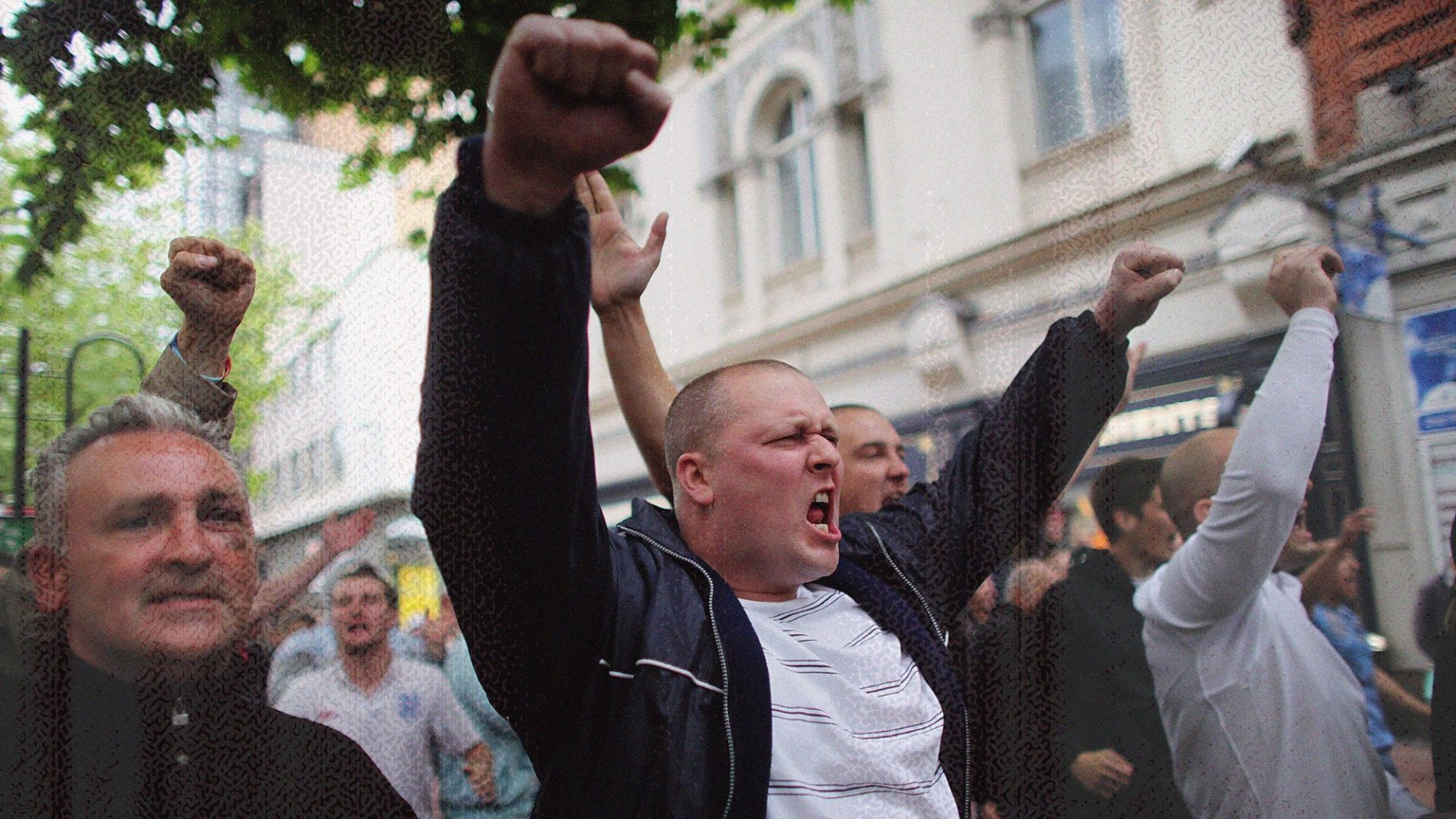A failed far right rally in Birmingham highlights how racist activism has evolved in strategy, becoming more subtle and media-savvy
It’s a Saturday morning. Police cars in the city centre are nothing new. Walking across the road to grab my obligatory iced coffee, I spot two large vans full of coppers on Colmore Row, and two paramedics who come into the coffee shop after me. I noticed them, sure, but I put my headphones on and go through the mental list of where to go, errands to run and everything else.
But as I walk down Colmore Row, getting close to the town hall on Victoria Square, there are more police vans and people carrying anti-racism placards. Again, it’s not an odd sight – and then I remember what was supposed to happen today.
Britain First is trying to rally “thousands” of Brummies to protest against immigrants in Birmingham. But it looks less like a rallying of the masses and more like a group of lads after a rough night out on Broad Street. It is so hilariously small that I had not even registered it. My attention is more on dodging a group of street preachers, who I think are Scientologists.
If you are holding an old-fashioned racist protest, then Birmingham is somehow both the right and wrong place to do it. Groups like the BNP and Britain First have always viewed the city as an example of how multiculturalism can damage the fabric of British society. And so they come to Birmingham thinking they can rally support – only to find no one in the great multicultural city shows up. It looks like a contender for a racist march. Actually it isn’t.
I know why they keep on getting it wrong. At least once a week, some shitty account on X with an AI “British bulldog” profile picture will post a video of a Birmingham street market and ask if you would want to live here. The implication is that areas like that are no-go spaces. But they are neighbourhoods I have walked through without issue as a woman and an atheist.
I grew up going to markets like that on a Saturday with my mum. The worst thing about them wasn’t any sort of physical threat, but the smell of raw fish and the bellowing of the stallholders. It’s why I preferred the library.
It is comforting to know that Birmingham will largely tell Britain First to ’eff off. And yet, what struck me about the event was what it said about the evolution of far right activism in the UK. It seems that, while their numbers may have dwindled, their strategies have become a little sharper. Gone are the days of overtly aggressive confrontation; instead, they’ve adapted to a climate in which blunt racism and xenophobia are replaced with more insidious messaging, using subtler language and more apparently moderate angles to attract attention.
We saw last summer that a riot can be provoked by what you might call more intelligent racists. The ones who go on TV and find ways to intellectualise their bigotry. After all, isn’t everything more appealing when said politely? They do not present themselves as anti-immigrant or racist. Instead, they’ll tell you they are concerned with change and with the pressure that’s put on public services – and how you’ll soon feel like a stranger in your own city.
Britain First is a ghost of its former self, but it still knows how to play that media game. Its attempts to provoke counter-demonstrations and generate outrage are an old formula that has been perfected over decades. Its rallies, small as they may be, are still carefully orchestrated events designed to capture headlines, even if the actual turnout is laughable.
As the afternoon carries on, I walk by the tram stop outside New Street. A police van is parked right near the taxi stand. Don’t worry lads, it’s a different type of idiot on the street nowadays – the kind with friends in the local council. And parliament.
Michaela Makusha writes about culture, politics, and racial and gender politics
